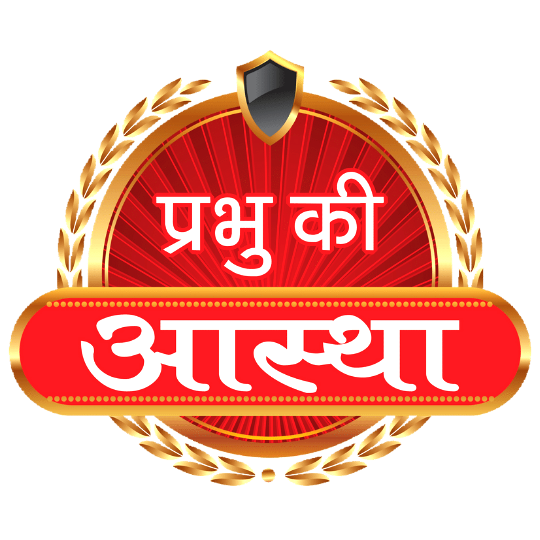PUJA ITEMS
-
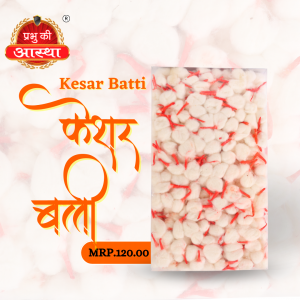 Read more
Read moreRui Jyot Baati is a traditional Indian lamp made of cotton wicks and ghee or oil. It is commonly used in Hindu households for various auspicious occasions and religious ceremonies.
The lamp is made by rolling cotton wicks in ghee or oil and placing them in a small clay or metal lamp. The wicks are then lit, producing a bright flame that illuminates the surrounding area. The lamp is considered to be a symbol of divine light and is believed to bring good fortune and prosperity.
Rui Jyot Baati is often used in puja rituals and is considered to be an essential part of the worship. It is believed that lighting the lamp creates a positive and sacred environment that helps to connect with the divine.
In addition to its spiritual significance, Rui Jyot Baati is also used for its aesthetic value. The lamp creates a warm and inviting atmosphere and is often used to decorate homes during festivals and other celebrations.
Overall, Rui Jyot Baati holds great cultural and spiritual significance in Hinduism and is an integral part of many religious and cultural traditions.
-
 Read more
Read moreRui Jyot Baati is a traditional Indian lamp made of cotton wicks and ghee or oil. It is commonly used in Hindu households for various auspicious occasions and religious ceremonies.
The lamp is made by rolling cotton wicks in ghee or oil and placing them in a small clay or metal lamp. The wicks are then lit, producing a bright flame that illuminates the surrounding area. The lamp is considered to be a symbol of divine light and is believed to bring good fortune and prosperity.
Rui Jyot Baati is often used in puja rituals and is considered to be an essential part of the worship. It is believed that lighting the lamp creates a positive and sacred environment that helps to connect with the divine.
In addition to its spiritual significance, Rui Jyot Baati is also used for its aesthetic value. The lamp creates a warm and inviting atmosphere and is often used to decorate homes during festivals and other celebrations.
Overall, Rui Jyot Baati holds great cultural and spiritual significance in Hinduism and is an integral part of many religious and cultural traditions.
-
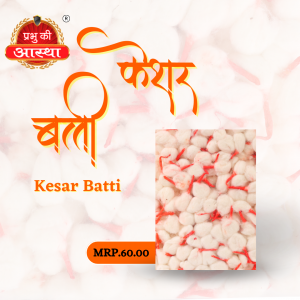 Read more
Read moreRui Jyot Baati is a traditional Indian lamp made of cotton wicks and ghee or oil. It is commonly used in Hindu households for various auspicious occasions and religious ceremonies.
The lamp is made by rolling cotton wicks in ghee or oil and placing them in a small clay or metal lamp. The wicks are then lit, producing a bright flame that illuminates the surrounding area. The lamp is considered to be a symbol of divine light and is believed to bring good fortune and prosperity.
Rui Jyot Baati is often used in puja rituals and is considered to be an essential part of the worship. It is believed that lighting the lamp creates a positive and sacred environment that helps to connect with the divine.
In addition to its spiritual significance, Rui Jyot Baati is also used for its aesthetic value. The lamp creates a warm and inviting atmosphere and is often used to decorate homes during festivals and other celebrations.
Overall, Rui Jyot Baati holds great cultural and spiritual significance in Hinduism and is an integral part of many religious and cultural traditions.
-
 Read more
Read moreTilak Chandan Paste: Meaning and Ritual Significance Tilak Chandan paste, made from sandalwood (chandan), is a sacred substance widely used in Hindu rituals and spiritual practices. Prepared by rubbing a sandalwood stick on a stone with a few drops of water or rose water, this aromatic paste holds immense religious and cultural significance. In pujas…
-
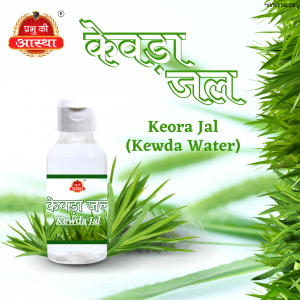 Read more
Read moreKeora water is a fragrant water made from the distilled flowers of the keora plant, also known as the pandanus plant. The keora plant is native to Southeast Asia, and is commonly used in traditional medicine, cooking, and perfumery.
Keora water is widely used in Indian and Bangladeshi cuisine to flavor sweet dishes such as rice puddings, milk-based desserts, and sweetened beverages. It is also commonly used in perfumery, particularly in the production of attars, which are traditional Indian perfumes made from natural ingredients.
In addition to its culinary and fragrance uses, keora water is also believed to have medicinal properties. It is often used in traditional medicine to treat various ailments, including digestive issues, fever, and headaches.
Keora water is typically available in specialty food stores and online, and is often used in small quantities to add a distinctive floral flavor to dishes and beverages. While keora water is generally considered safe, it is important to ensure that you are using high-quality, pure keora water to avoid potential contamination or adverse reactions.
-
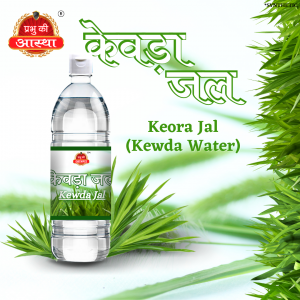 Read more
Read moreKeora water is a fragrant water made from the distilled flowers of the keora plant, also known as the pandanus plant. The keora plant is native to Southeast Asia, and is commonly used in traditional medicine, cooking, and perfumery.
Keora water is widely used in Indian and Bangladeshi cuisine to flavor sweet dishes such as rice puddings, milk-based desserts, and sweetened beverages. It is also commonly used in perfumery, particularly in the production of attars, which are traditional Indian perfumes made from natural ingredients.
In addition to its culinary and fragrance uses, keora water is also believed to have medicinal properties. It is often used in traditional medicine to treat various ailments, including digestive issues, fever, and headaches.
Keora water is typically available in specialty food stores and online, and is often used in small quantities to add a distinctive floral flavor to dishes and beverages. While keora water is generally considered safe, it is important to ensure that you are using high-quality, pure keora water to avoid potential contamination or adverse reactions.
-
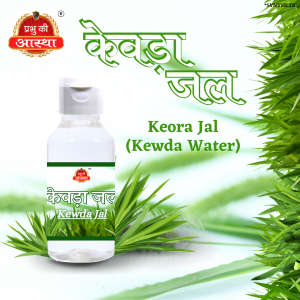 Read more
Read moreKeora water is a fragrant water made from the distilled flowers of the keora plant, also known as the pandanus plant. The keora plant is native to Southeast Asia, and is commonly used in traditional medicine, cooking, and perfumery.
Keora water is widely used in Indian and Bangladeshi cuisine to flavor sweet dishes such as rice puddings, milk-based desserts, and sweetened beverages. It is also commonly used in perfumery, particularly in the production of attars, which are traditional Indian perfumes made from natural ingredients.
In addition to its culinary and fragrance uses, keora water is also believed to have medicinal properties. It is often used in traditional medicine to treat various ailments, including digestive issues, fever, and headaches.
Keora water is typically available in specialty food stores and online, and is often used in small quantities to add a distinctive floral flavor to dishes and beverages. While keora water is generally considered safe, it is important to ensure that you are using high-quality, pure keora water to avoid potential contamination or adverse reactions.
-
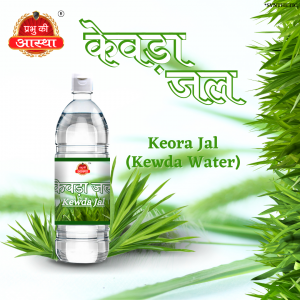 Read more
Read moreKeora water is a fragrant water made from the distilled flowers of the keora plant, also known as the pandanus plant. The keora plant is native to Southeast Asia, and is commonly used in traditional medicine, cooking, and perfumery.
Keora water is widely used in Indian and Bangladeshi cuisine to flavor sweet dishes such as rice puddings, milk-based desserts, and sweetened beverages. It is also commonly used in perfumery, particularly in the production of attars, which are traditional Indian perfumes made from natural ingredients.
In addition to its culinary and fragrance uses, keora water is also believed to have medicinal properties. It is often used in traditional medicine to treat various ailments, including digestive issues, fever, and headaches.
Keora water is typically available in specialty food stores and online, and is often used in small quantities to add a distinctive floral flavor to dishes and beverages. While keora water is generally considered safe, it is important to ensure that you are using high-quality, pure keora water to avoid potential contamination or adverse reactions.
-
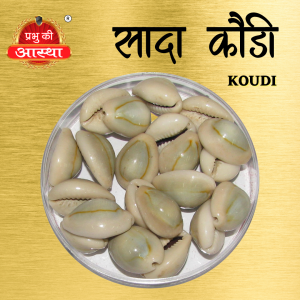 Read more
Read moreKaudi, also known as Cowrie, is a type of sea shell that has been used for various purposes throughout history. In Hinduism, Kaudi holds great significance and is used in many religious rituals and ceremonies.
In Hinduism, Kaudi is believed to be a symbol of Goddess Mahalakshmi, the Hindu goddess of wealth, fortune, and prosperity. It is often used in pujas and other religious ceremonies to invoke the blessings of the goddess.
Kaudi is also believed to have protective properties and is often used to ward off negative energies and evil spirits. It is considered a potent talisman for attracting good luck, wealth, and prosperity.
Apart from its spiritual significance, Kaudi has also been used in various cultures and traditions around the world for different purposes. In many African cultures, it is used as currency and as a symbol of good luck and prosperity. In ancient China, Kaudi was used for divination purposes and was believed to have the power to predict the future.
In modern times, Kaudi is still used in various spiritual and cultural practices. It is often used as a decorative element in jewelry, clothing, and home decor. Kaudi shells are also used in crafting and are popular for making shell necklaces and other accessories.
Overall, Kaudi is a versatile and meaningful sea shell that holds great significance in many cultures and traditions. In Hinduism, it is a potent symbol of prosperity and is used in many religious ceremonies to invoke the blessings of the goddess Mahalakshmi.
-
 Read more
Read moreIndian myrrh, also known as “guggul,” is a resin that is commonly used in Hindu religious ceremonies and pujas, particularly in North India. It is believed to have spiritual and medicinal properties, and is often used as an incense or offering during religious ceremonies.
In Hinduism, Indian myrrh is believed to have purifying and protective qualities, and is often used to ward off negative energies and evil spirits. It is also believed to have the ability to cleanse and purify the soul, and is used as an offering to the gods and goddesses.
In addition to its spiritual significance, Indian myrrh is also used in traditional Ayurvedic medicine to treat various ailments, including arthritis, skin disorders, and digestive issues. It is believed to have anti-inflammatory and antimicrobial properties, and is commonly used in Ayurvedic remedies and supplements.
When using Indian myrrh for puja or religious ceremonies, it is important to ensure that you are using high-quality, pure resin from a trusted source. It is also important to follow proper safety precautions, such as using a heat-resistant container and avoiding inhalation of the smoke.
Overall, Indian myrrh is a valued and versatile ingredient in Hindu religious ceremonies and traditional medicine, and is still widely used today for its spiritual and medicinal properties.
-
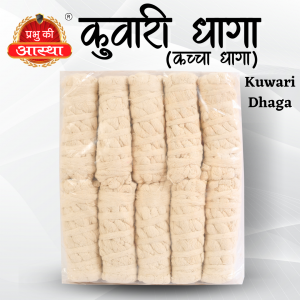 Read more
Read moreKunwari Dhaga, also known as Kalava, is a sacred thread used in Hinduism during various auspicious occasions and puja ceremonies. It is usually made of cotton and is tied on the wrist of the person performing the puja or the person for whom the puja is being performed.
The Kunwari Dhaga is believed to be a symbol of protection, purity, and blessings from the divine. It is also said to represent the bond of love and trust between the devotee and the deity being worshipped.
During puja ceremonies, the Kunwari Dhaga is tied around the wrist of the devotee by the priest or the elder family member, along with chanting of mantras and prayers. The thread is tied on the right wrist of men and the left wrist of women.
It is also believed that wearing the Kunwari Dhaga helps in warding off negative energies and evil spirits. It is considered auspicious to wear the thread until it falls off naturally, which is believed to happen when the blessings of the deity have been fulfilled.
In conclusion, Kunwari Dhaga holds great significance in Hinduism and is an integral part of many puja ceremonies. It is a symbol of devotion, protection, and blessings from the divine.
-
 Read more
Read moreKunwari Dhaga, also known as Kalava, is a sacred thread used in Hinduism during various auspicious occasions and puja ceremonies. It is usually made of cotton and is tied on the wrist of the person performing the puja or the person for whom the puja is being performed.
The Kunwari Dhaga is believed to be a symbol of protection, purity, and blessings from the divine. It is also said to represent the bond of love and trust between the devotee and the deity being worshipped.
During puja ceremonies, the Kunwari Dhaga is tied around the wrist of the devotee by the priest or the elder family member, along with chanting of mantras and prayers. The thread is tied on the right wrist of men and the left wrist of women.
It is also believed that wearing the Kunwari Dhaga helps in warding off negative energies and evil spirits. It is considered auspicious to wear the thread until it falls off naturally, which is believed to happen when the blessings of the deity have been fulfilled.
In conclusion, Kunwari Dhaga holds great significance in Hinduism and is an integral part of many puja ceremonies. It is a symbol of devotion, protection, and blessings from the divine.

